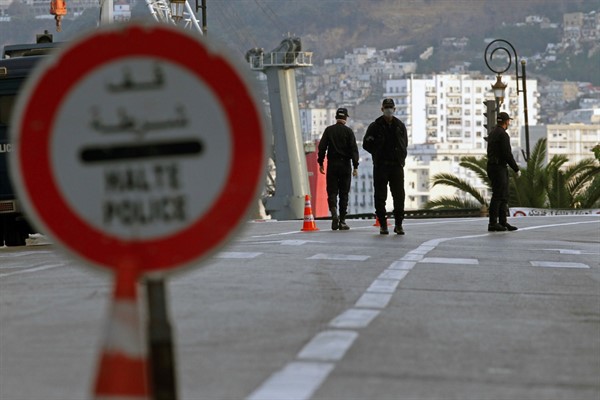The coronavirus pandemic is challenging Algeria’s aging health care system, as the number of confirmed cases of COVID-19 approach 45,000, with some 1,500 deaths. Yet rather than the virus itself, it is the Algerian regime’s use of the pandemic to quell popular dissent that is pushing the country deeper into crisis. The authorities have seized on the public health emergency to arrest activists and clamp down on the flow of information, actions that will likely only worsen Algeria’s long-running political stalemate.
Anti-government demonstrators calling themselves Hirak, or “movement” in Arabic, had been taking to the streets on a weekly basis since February 2019—initially to protest ailing, octogenarian President Abdelaziz Bouteflika’s attempt to run for a fifth term, and, following Bouteflika’s resignation months later, to demand reforms to the entire entrenched political system. But due to the pandemic, they have not held a protest since March 13. A few days after that final demonstration, the regime sealed Algeria’s borders, closed down schools, mosques and cafes, and banned social gatherings. Stricter measures, such as temporary lockdowns and curfews, were later implemented in the worst-affected parts of the country. These moves mirrored the actions taken by governments across the globe.
But then, under cover of the pandemic, the regime stepped up a campaign of repression against its critics. By April, President Abdelmadjid Tebboune had signed new legislation criminalizing the spread of “fake news.” Penalties under the law, which targets news outlets and social media posts alike, can involve up to five years in jail and fines of up to $3,900. Several prominent activists and journalists have already been prosecuted under the new restrictions, and access to several independent news sites has been blocked within Algeria.

